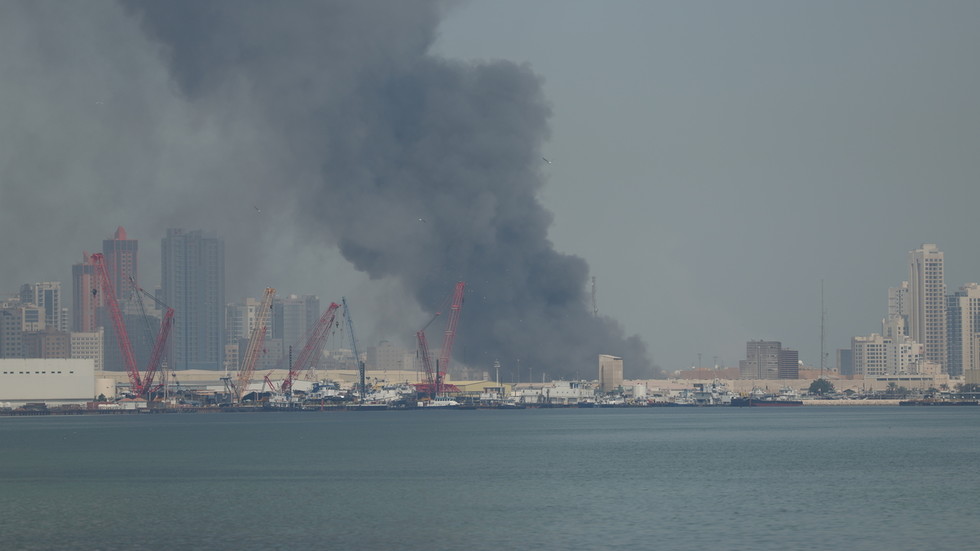A bipolar currency regime is likely to replace the current greenback-based unipolar system, famed economist Nouriel Roubini believes
The US dollar’s status as the world’s main reserve currency is in jeopardy, renowned economist Nouriel Roubini, who predicted the global financial crisis of 2008, wrote in an article for the Financial Times on Sunday.
While no currency is yet capable of knocking the greenback off its pedestal altogether, the US currency is quickly losing its competitive advantage to the Chinese yuan, Roubini wrote.
“Given the increased weaponization of the dollar for national security purposes, and the growing geopolitical rivalry between the west and revisionist powers such as China, Russia, Iran and North Korea, some argue that de-dollarization will accelerate…In a world that will be increasingly divided into two geopolitical spheres of influence – namely those surrounding the US and China – it is likely that a bipolar…currency regime will eventually replace the unipolar one,” the economist, dubbed ‘Doctor Doom’ by Wall Street for his tendency toward grim predictions, stated.
Sceptics note that the yuan cannot become a true reserve currency unless Beijing lifts capital controls, accepts permanent current account deficits, and the yuan’s exchange rate becomes more flexible. But the economist argues that such points are no longer valid, as Washington is actively undermining the allure of its currency with sanctions.
“Complete exchange rate flexibility and international capital mobility is not necessary in order for a country to achieve reserve currency status…And while China may have capital controls, the US has its own version that may reduce the appeal of dollar assets among foes and relative friends. These include financial sanctions against its rivals, restrictions to inward investment in many national security-sensitive sectors and firms, and even secondary sanctions against friends who violate the primary ones,” Roubini argued.
The economist also noted that China has been stepping up yuan transactions with its foreign partners, and said this trend will likely continue, with more emerging market economies welcoming “the ability to trade oil in [yuan] and to hold a greater share of their reserves in the Chinese currency… given that they do a great deal more trade with China than the US.” He added that new technologies, like CBDCs, Alipay-like payment systems, swap lines between China and its partners and national analogs of the SWIFT messaging system, “will hasten the advent of a bipolar global monetary and financial system.”
“For all these reasons, the relative decline of the US dollar as the main reserve currency is likely to occur over the next decade. The intensifying geopolitical contest between Washington and Beijing will inevitably be felt in a bipolar global reserve currency regime as well,” Roubini concluded.
https://www.rt.com/business/571017-nouriel-roubini-us-dollar-demise/
Tehran has vowed retaliation for the “savage” attack by Israeli and US “aggressors”
Over 100 students have been killed and dozens injured in an Israeli airstrike on a girls’ primary school in the city of Minab, in southern Iran, according to the country’s news agency Tasnim. The attack comes amid ongoing airstrikes on the Islamic Republic by Israel and the US.
Israel launched what it described as a pre-emptive operation against Iranian military and nuclear-related targets on Saturday, saying the strikes were aimed at neutralizing threats posed by Iran. US President Donald Trump later said Washington was joining the operation, citing the failure of nuclear diplomacy as a direct trigger for the renewed bombing.
One of the strikes reportedly targeted an elementary school in the city of Minab, killing at least 108 students and leaving 92 others injured, according to local officials.
READ MORE: US-Israeli attack on Iran plunges Middle East into chaos: LIVE UPDATES, VIDEOS, PHOTOS...
Iranian forces have retaliated against American-Israeli attacks by targeting Washington’s military bases across the region
The US has suffered 200 casualties in Iranian retaliatory strikes on bases across the Middle East, the Islamic Revolutionary Guard Corps (IRGC) has claimed.
Backed by the US, Israel launched what was described as a preemptive operation against Iranian military and nuclear-related targets in the early hours of Saturday, claiming the strikes were aimed at neutralizing threats posed by the Islamic Republic in the region.
US President Donald Trump later confirmed that the White House had supported West Jerusalem in conducting the strikes, citing the failure of nuclear diplomacy as a direct trigger for the move.
“As a result of missile strikes on American bases, at least 200 US military personnel were killed and injured,” the Tasnim news agency reported Saturday, citing a statement by the IRGC.
Commenting on the retaliation, IRGC General Ebrahim Jabbari warned ...















